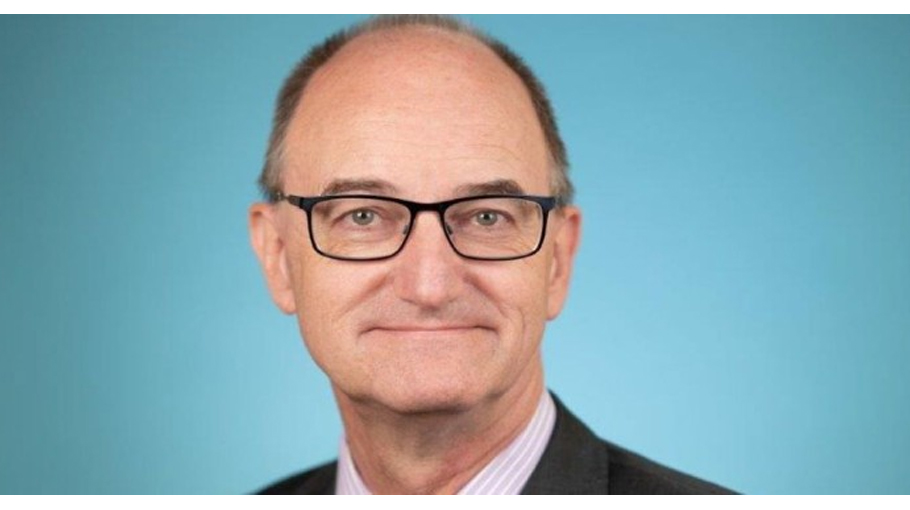Reconciliation not possible without acknowledging truth
Says German envoy

German Ambassador to Bangladesh Achim Tröster has laid emphasis on making efforts for reconciliation to change one’s mind and to cast away the shadows of a bloody and revengeful past.
"In order to achieve reconciliation, we need to hear the word sorry and an apology for the crimes and mistakes that have been committed. I may be wrong, but so far I unfortunately have not heard it here," he said while speaking at a reception marking the Day of German Unity (falls on October 3) at the Embassy on Monday evening.
Furthermore, the Ambassador said, reconciliation is not possible without investigating and acknowledging the truth.
Finance Adviser Dr Salehuddin Ahmed spoke as the reception, highlighting importance of the growing relations.
Ambassador Tröster found what a well-known, experienced and thoughtful politician from Bangladesh, whom he appreciates, said recently regarding a peaceful future of this country to be "very touching" and "convincing".
The politician mentioned the necessity of reconciliation—between the political parties, and within the parties.
"This is an idea that has worked well in the recent past in countries like South Africa or Rwanda, but also equally in Europe. I don’t see any reason why this should not be the case in Bangladesh and contribute to a much better communal life," said the Ambassador.
Tröster pointed out that they were all standing in a building that is co-owned by two countries that were enemies for centuries.
“France and Germany have decided that reconciliation is the way forward towards a peaceful existence of our peoples, and a necessary precondition for their aspirations for a free, peaceful and prosperous Europe.
“I think France and Germany, the whole European Union are a testimony of the success of that way,” said the envoy.
He said the interim government is matching the expectations of many people in Bangladesh and outside of Bangladesh by initiating proper investigation of the events in July and August 2024, with the support of the Office of the High Representative for Human Rights in Geneva. The German government has contributed 50,000 euro to this operation of the OHCHR.
“I am confident that also in challenging times, the friendly and good relations between Bangladesh and Germany will continue to flourish and blossom,” said the German envoy, adding that there is reason for confidence since many people with goodwill are working on it.
Germany supports the work and the mission of the interim government of Bangladesh and stands ready to help, as it has done in the past, he said.
German Federal Chancelor Olaf Scholz wrote to the Chief Adviser Dr. Yunus on the occasion of assuming office: “You assume responsibility at a critical phase in your country’s development. I wish you and the Interim Government great strength and success for the tasks that lie ahead.”
The Ambassador said Germany has been a proven partner in the last 52 years for Bangladesh’s impressive development, and they are proud to have been contributing to its successes.
During the last governmental negotiations, Germany committed 176 million additional euros for cooperation between the countries, mainly in the fields of renewable energy, energy efficiency, and climate resilience.
As for the Rohingyas Bangladesh is generously hosting for long, Germany can very well understand the heavy burden that is put on Bangladesh, said the envoy.
Germany itself has given shelter and protection to a lot of people in the recent years. Germany is currently taking care of more than 3.1 million refugees and asylum seekers within its borders.
Germany has continued to support Bangladesh with the Rohingyas and has contributed since 2017 with 305 million euros to the humanitarian operations in and around the camps.
In the field of economy, Ambassador Tröster said, the relations between Bangladesh and Germany continue to strive as before. Germany remains the second largest importer of garment products from Bangladesh, and there is a lot of scope for further expanding businesses in other promising sectors.
The German government appreciated the efforts by the interim government to swiftly restore security and stability in the country and acknowledged the reforms that have been started, for example in the banking sector.
The Embassy talked to German businesspeople and they all generally display a continued interest in Bangladesh.
"They would applaud the success of Bangladesh’s economic reform agenda that would allow them to intensify and broaden their businesses with Bangladesh," said the Ambassador.
The German government assumed that with the establishment of the interim government, the common basis for cooperation—bilaterally as well as in the framework of its cooperation with the European Union—has broadened.
The envoy said they now share more democratic values and convictions than has been the case before, and they are hopeful to jointly make the best of it, to grasp this chance that has suddenly come about, for the benefit of the people of Bangladesh, for freedom, participatory democracy, and more prosperity for all and not only a few.
"Being a democracy, we believe in these values, and we have seen that large parts of the society in Bangladesh were willing to make enormous personal sacrifices, up to the ultimate, for these aspirations," Tröster said.
"We are mourning these tragic losses and will keep them and their outstanding courage in our memories," he said.
For their aspirations and dreams to come true, many citizens of Bangladesh feel that it needs a different approach in some areas, the German Ambassador said.




